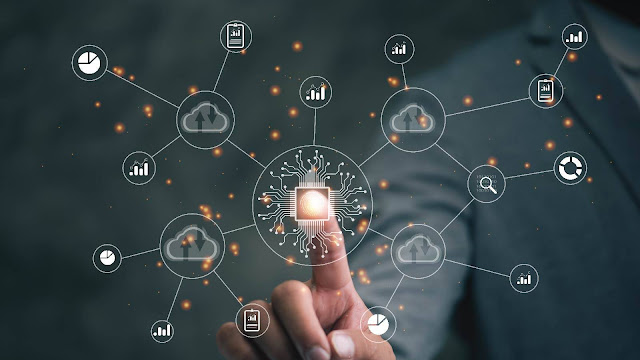Featured
- Get link
- X
- Other Apps
A Third of Americans Are Sleep-Deprived. This Technology Could Help Them Rest Easier

Part of the problem is how tough it is to look at slumber. Experiments currently require individuals to return into a sanatorium or laboratory, cover themselves with an army of electrodes and permit a crew of doctors to have a look at their attempts to go with the flow off. “It’s type of a nightmare,” says Dr. Emmanuel Mignot, director of the Stanford Center for snooze Sciences and Medicine. “They’re hooked up to all this stuff and they can barely move.” This environment could make it tough to capture statistics about regular sleep and is frequently prohibitively costly to maintain for longer than a night time or — a need for researchers looking to understand trends over time.
“When you're a affected person, when you have issues, the last element you want to do is upload to those troubles by means of having to put on sensors, or take measurements or write diaries about the way you experience,” says Dina Katabi, a lecturer of electrical engineering and pc technology at MIT. “If we will display health continuously but passively in a affected person’s natural environment, that could assist dramatically read more:- fashionford
Experts say artificial intelligence (AI) would possibly help researchers do simply that. “It has the capacity of changing sleep medication absolutely,” says Mignot. “Sleep goes thru a revolution.”
In 2017, Katabi and her crew tested a way to screen sleep records with none wires or electrodes. Instead of FDA-authorised sleep staging gadgets, they used a tool that emits radio frequency signals that soar off the body. Because even tiny moves — assume muscular twitches or blood pulsing, not rolling over or kicking a leg — regulate the way these alerts travel, the researchers evolved an AI algorithm that might companion the statistics acquired from the radio waves with certain stages of sleep. In an ordeal monitoring 25 humans, they observed that the AI machine should appropriately guess an man or woman’s sleep degree approximately 80% of the time the use of handiest radio signal records, offering precious facts approximately their usual rest first-rate and troubles they is probably experiencing. The device is currently to be had for research functions, however it is not offered commercially.
Katabi allows that a few accuracy is lost without direct mind-pastime tracking, however she says the system gives large advantages over conventional sleep research, given how accessible and non-invasive it's miles — perks that could permit researchers to collect a higher volume of sleep records with out inconveniencing patients.
Once this data is collected, but, it still wishes to be analyzed and interpreted. And here, too, AI may want to make an impact read more :-fshyash
Right now, sleep researchers manually pore over pages of sensor-generated records associated with mind pastime, eye moves, respiratory patterns, leg kicks and greater, and use it to make checks about sleep first-rate and feasible troubles, inclusive of sleep apnea and narcolepsy. But in a 2018 paper posted in Nature Communications, Stanford’s Mignot and his colleagues confirmed that an AI device should use this statistics to stumble on sleep troubles better than a human technician.
First, they asked six technicians to have a look at and score a single set of sleep records, seeking out abnormalities that could endorse narcolepsy. The researchers then averaged those scores to get a consensus fee. Next, the researchers skilled an AI machine via showing it 3,000 sleep readings, so it is able to start to associate sure situations with unique data tendencies. Then they'd the machine rating the identical sleep records because the technicians. It were given closer to the institution’s consensus cost than any single human did, suggesting that it changed into more accurate than the common technician.
“You are doing better than the same old of care, and it’s less expensive and it’s faster and it’s more reproducible,” Mignot says. While the innovation has no longer yet been approved for clinical use, Mignot says the science is sound.
But whilst scientists like Mignot and Katabi are carefully analyzing AI and verifying their consequences with rigorous tests, consumer-dealing with corporations are already jumping into bed with the generation.
This month, sleep tech enterprise BRYTE introduced a smart mattress that learns from facts measured via internal sensors as well as feedback supplied via the consumer till it can enhance sleep through adjusting its temperature, help and surrounding mild in actual-time. Mattress company Eight additionally syncs its clever mattresses with an AI-powered sleep educate app that supplies sleep insights and tips primarily based on the man or woman’s sleep records; the bed can also be installed to other smart home functions, which includes lights and thermostats, to regulate environmental conditions routinely read more:- modestofashions
- Get link
- X
- Other Apps
Popular Posts
What are the Marketing Technologies Driving the Change? And, More
- Get link
- X
- Other Apps
